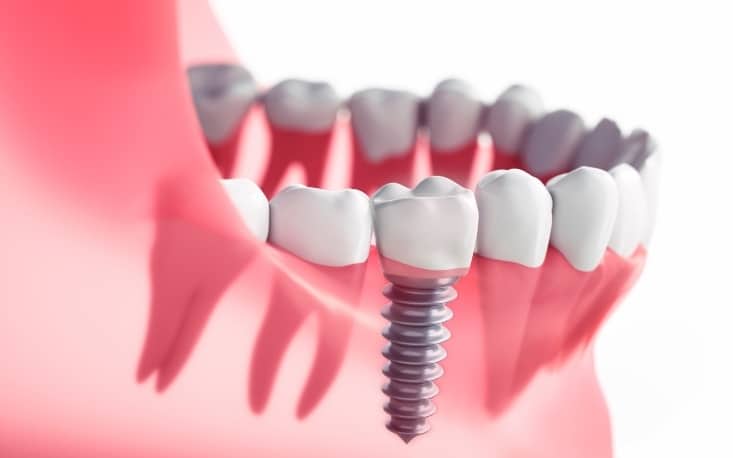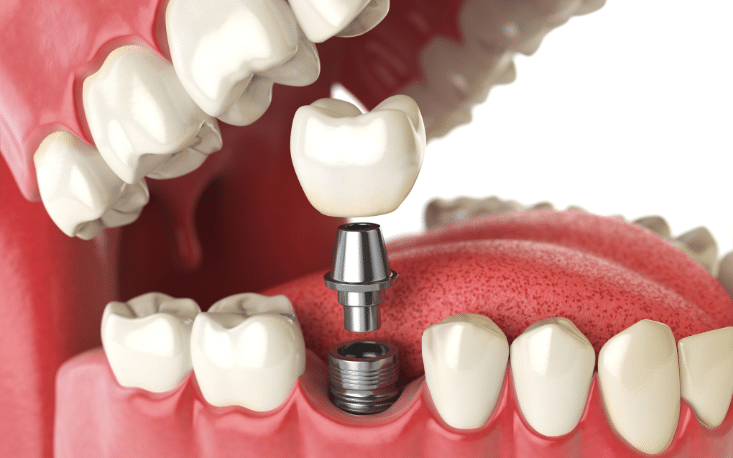ONLINE SCHEDULING AND VIRTUAL CONSULTS AVAILABLE

Are Dental Implants Right for You? Eligibility and Candidacy Criteria

Are you considering dental implants to restore your smile and dental function? Understanding whether dental implants are suitable for you involves knowing the intricate criteria and considerations that determine candidacy.
In today’s advanced dental landscape, implants offer a robust solution for replacing missing teeth, providing both aesthetic enhancement and functional restoration. This blog explores the essential factors that influence eligibility for dental implants and guides you through the decision-making process.
Dental implants are not just about filling gaps; they represent a modern marvel in dental technology, offering a permanent solution that mimics the natural tooth structure. From improving chewing ability to boosting self-confidence, the benefits are numerous.
However, it’s crucial to grasp the specifics—your oral health, bone structure, and overall health play pivotal roles in determining if implants are the right choice for you. Read on as we delve into the world of dental implants, unraveling the criteria that make them a viable option for restoring your smile.
What Are Dental Implants?
Dental implants are sophisticated tooth replacement options designed to mimic the natural tooth structure both in function and appearance. They consist of three primary components:
- Implant Fixture: A small titanium post surgically inserted into the jawbone, serving as the root of the artificial tooth.
- Abutment: A connector piece that attaches to the implant fixture, protruding above the gum line to support the prosthetic tooth.
- Prosthetic Tooth: Typically, a crown is made from durable materials like porcelain or ceramic, custom-designed to match the shape, size, and color of natural teeth.
Function Compared to Other Options:
- Stability: Unlike removable dentures or bridges, implants fuse with the jawbone through a process called osseointegration, providing stability and preventing bone loss.
- Durability: Implants offer long-term durability, often lasting a lifetime with proper care, whereas bridges may need replacement every 10-15 years.
- Natural Feel and Function: Implants closely resemble natural teeth in appearance and function, allowing for normal chewing, speaking, and smiling without discomfort or slipping.
Dental implants Plantation stands out as a reliable solution for tooth loss, offering superior aesthetics and functionality compared to traditional alternatives.
Benefits of Dental Implants
Dental implants offer several significant benefits for individuals seeking a permanent solution to tooth loss. They contribute to:
- Enhanced Oral Health: Implants integrate with the jawbone, preserving bone structure and preventing deterioration that can occur with missing teeth.
- Improved Functionality: Unlike removable dentures, implants function like natural teeth, allowing for confident chewing and speaking.
- Long-Term Durability: With proper care, implants can last a lifetime, eliminating the need for frequent replacements.
- Aesthetic Appeal: Implants are designed to match the natural appearance of surrounding teeth, enhancing smile aesthetics and self-confidence.
Factors Affecting Eligibility
Several factors determine whether someone is eligible for dental implants. These include:
- General Oral Health: Candidates should have good oral hygiene practices, including regular brushing, flossing, and dental check-ups, to ensure the implant site remains healthy.
- Bone Density: Sufficient bone density and volume in the jaw are crucial for supporting the implant. If bone loss has occurred, bone grafting may be necessary to augment the jawbone.
- Jaw Structure: The shape and structure of the jawbone play a critical role in the success of dental implants. An adequate amount of healthy bone is necessary to anchor the implant securely.
- Overall Health: Factors such as chronic diseases (e.g., diabetes) and habits like smoking can affect healing and increase the risk of implant failure. It’s essential for candidates to discuss their medical history with a dentist or oral surgeon.
Candidacy Criteria for Dental Implants
When considering dental implants, specific criteria determine a patient’s candidacy, ensuring the procedure’s success and longevity:
- Health Conditions: Certain health issues, such as uncontrolled diabetes, cancer treatments affecting bone health, or autoimmune disorders, may affect eligibility. Patients with these conditions should consult their dentist or oral surgeon to assess individual risks and benefits.
- Gum Health: Healthy gums are essential for the success of dental implants. Patients with periodontal disease (gum disease) may require treatment before implant placement to ensure the gums can support the implant properly.
- Bone Density: Sufficient bone density in the jaw is necessary to support the implant. If the jawbone lacks density due to bone loss or other reasons, bone grafting procedures may be recommended to build up the bone before implant surgery.
- Age Considerations: While age alone isn’t a determining factor, overall health and bone density become more critical with age. Younger patients with healthy bone structure may have an advantage in implant success, but older adults can still be eligible with proper evaluation and preparation.
- Smoking and Tobacco Use: Smoking can impair healing and increase the risk of implant failure. Dentists often advise patients to quit smoking before and after implant surgery to improve outcomes.
- Commitment to Oral Care: Patients must commit to excellent oral hygiene practices post-implantation, including regular brushing, flossing, and dental check-ups, to maintain the health of their implants and surrounding teeth.
Consultation and Evaluation Process
A thorough consultation and evaluation are pivotal in determining candidacy for dental implants, ensuring the procedure’s success and patient satisfaction:
- Comprehensive Dental Exam: The initial consultation involves a detailed dental examination, including X-rays and possibly CT scans, to assess the condition of teeth, gums, and jawbone. This helps identify any underlying issues that may affect implant placement.
- Health History Review: Dentists review the patient’s medical history to identify any conditions or medications that could impact oral health or healing post-surgery.
- Bone Density Assessment: Using imaging techniques, such as X-rays or CT scans, dentists evaluate the density and volume of the jawbone to determine if it can support an implant. If bone density is insufficient, bone grafting may be recommended.
- Discussion of Treatment Options: Based on the exam findings, the dentist discusses treatment options tailored to the patient’s needs and preferences. Alternatives to implants, such as bridges or dentures, may be considered depending on oral health and aesthetic goals.
- Clearing Up Questions: The consultation provides an opportunity for patients to ask questions about the procedure, recovery process, costs, and expected outcomes. Dentists clarify doubts and ensure patients are well-informed before making a decision.
- Customized Treatment Plan: Following the evaluation, a personalized treatment plan is developed, outlining the steps, timeline, and expected outcomes of the implant procedure.
Determining if dental implants are right for you involves careful consideration of your oral health, bone structure, and overall medical history. Consulting with a qualified dentist or specialist is crucial for assessing candidacy and discussing personalized treatment options. With advancements in dental technology and procedures, implants offer a durable, natural-looking solution to restore your smile and enhance oral function. Make an informed decision by seeking professional guidance tailored to your specific needs and expectations.





